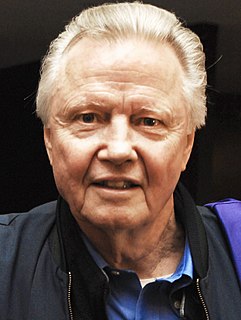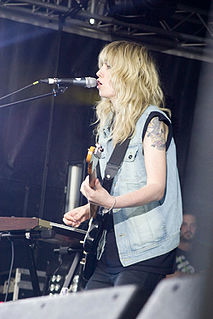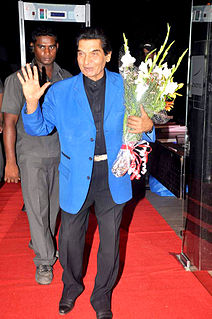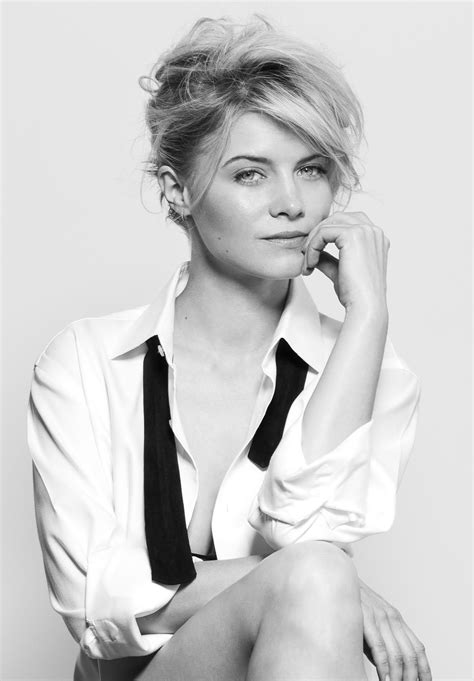A Quote by Damien Chazelle
I didn't have traditional stage fright. If there was 500 people in the audience or three people in the audience, it didn't really make a difference. What made a difference was the conductor. Everything that I was scared about as a drummer was him. It was his face. It was whether or not he'd approve of my playing.
Related Quotes
Normally classical music is set up so you have professionals on a stage and a bunch of audience - it's us versus them. You spend your entire time as an audience member looking at the back of the conductor so you're already aware of a certain kind of hierarchy when you are there: there are people who can do it, who are on stage, and you aren't on stage so you can't do it. There's also a conductor who is telling the people who are onstage exactly what to do and when to do it and so you know that person is more important than the people on stage.
My audience is made up of two groups of people. The first group includes people whose roots are deep in the Christian faith, but for whom the traditional symbols, as traditionally understood, no longer make sense. The other audience is the audience that has left. I call them the Church Alumni Association, citizens of the secular city. They are a bit nostalgic about this faith of their childhood, but they aren't really interested in trotting it out or becoming involved with it again as it is presently organized.
Obviously, psychologically, it would make all the difference in the world. But I think it would also make a big difference financially. If people understood, that, "Y'know, having all those things, that I was told I was supposed to have, to be successful, really is not a measure of success, and I can't have them anyway -" Yeah, that would make a big difference. It would've made a big difference, I think, in my life.
Each religion is a brave guess at the authorship of Hamlet. Yet, as far as the play goes, does it make any difference whether Shakespeare or Bacon wrote it? Would it make any difference to the actors if their parts happened out of nothingness, if they found themselves acting on the stage because of some gross and unpardonable accident? Would it make any difference if the playwright gave them the lines or whether they composed them themselves, so long as the lines were properly spoken? Would it make any difference to the characters if 'A Midsummer Night's Dream' was really a dream?
Alan: "I had terrible stage fright." Sin: "I'm not familiar with the concept of 'stage fright.'" A: "It's pretty awful. You end up having to picture the entire audience in their underwear. Phyllis was in that audience, you know." S: "Why, Alan, I had no idea your tastes ran that way." A: "Phyllis is a very nice lady. And I do not consider her so much aged as matured, like a fine wine. But I still think you owe me an archery lesson.
I got on stage and I went, "Oh wow. No stage fright." I couldn't do public speaking, and I couldn't play the piano in front of people, but I could act. I found that being on stage, I felt, "This is home." I felt an immediate right thing, and the exchange between the audience and the actors on stage was so fulfilling. I just went, "That is the conversation I want to have."
The difference when I'm writing a story versus writing a joke is that writing a joke is so much more about the structure and it's less about the conversation. To me, the thing that I love about stand-up is the intimacy between performer and audience.To get it even more conversational was something that really appealed to me and that I really enjoyed doing. My early experiments with it, with just telling a story from my life on stage, it was so satisfying to do. And seemingly for the audience as well. It's a different thing, and it's a different feeling and a different vibe.
A book came out recently written by scientists and environmentalists that made me so angry. It said the only thing we have to worry about is big industry. Each individual who tries to make his or her own environment better is useless. I find this criminal, because then you have a billion people all saying, It doesn't matter what I do because I'm just one person. But if you turn that around and a billion people say, What I do does make a difference, then it will make a difference.
What I love most about playing in front of people has something to do with a certain kind of energy exchange. The attention and appreciation of my audience feeds back into my playing. It really seems as if there is a true and equal give and take between performer and listener, making me aware of how much I depend on my audience. And since the audience is different every night, the music being played will differ too. Every space I performed in has its own magic and spirit.
I think as a performer, it can be really great to stand on stage, especially when you have more time, but I do think about the specific people in the audience, how it's hard for them to get up and go to the bathroom, how they chose not to do other things that night and have turned off their phones and everything. So for that reason, I think it's necessary to mix it up and talk to the audience.





































